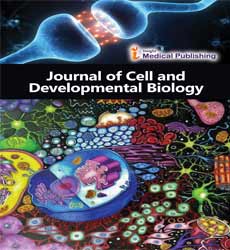Genetic Modification of Bacillus subtilis (ATCC-2063) and Optimization of Fermentation Parameters for Maximum Protease Production
Abstract
Aim of the study: The present study was aimed to enhance the production of protease enzyme in Bacillus subtilis strain utilizing strain improvement techniques and optimized fermentation parameters to acquire maximum cell growth and improve the production of protease. Materials and methods: The Bacillus subtilis (ATCC-2063) strain was selected and initially checked for its capability of producing protease enzyme. The strain improvement for increased productivity was mediated by U.V. irradiated mutation technique. The parameters of submerged fermentation such as nitrogen sources, carbon sources, medium pH, incubation temperature, dissolved oxygen concentration, harvesting time and agitation rate were optimized for achieving maximum protease production. Results: Genetically modified mutant, isolated after 120 seconds of UV exposure was selected based on its protease productivity (449 U/ml) for further studies. The mutated strain was found to produce maximum growth and protease productivity in optimized fermentation parameters viz. starch (0.70%) as carbon source, yeast extract (1.75%) as nitrogen source, temperature 600 C, pH 8, 65% of dissolved oxygen concentration and 24 hrs of fermentation. Conclusion: The results of the present study reveal that the genetically modified strain of Bacillus subtilis demonstrated improved cell growth in optimized fermentation parameters and the modified strain illustrated enhanced production of protease enzyme.
Open Access Journals
- Aquaculture & Veterinary Science
- Chemistry & Chemical Sciences
- Clinical Sciences
- Engineering
- General Science
- Genetics & Molecular Biology
- Health Care & Nursing
- Immunology & Microbiology
- Materials Science
- Mathematics & Physics
- Medical Sciences
- Neurology & Psychiatry
- Oncology & Cancer Science
- Pharmaceutical Sciences
